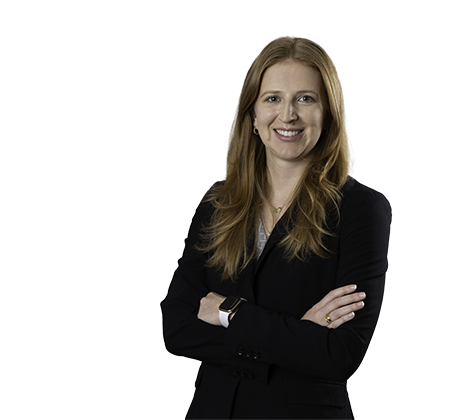NJDEP Proposes Expansive New Discharge Reporting Rule
The New Jersey Department of Environmental Protection (“NJDEP”) has proposed amendments to its site remediation rules to implement the 2019 amendments to the Site Remediation Reform Act, commonly known as SRRA 2.0. In a significant departure from existing discharge reporting obligations, the proposed section would require that any person with knowledge that a discharge occurred notify NJDEP of the discharge immediately. This proposed expansion of the reporting obligation will complicate environmental due diligence for transactions in New Jersey.
Purchasers’ due diligence generally includes an environmental evaluation of the previous uses of the property, as the purchaser could become strictly liable for remediation costs after closing. In addition, a property owner has an “innocent purchaser defense” to liability under the Spill Compensation and Control Act (the “Spill Act”) if it performed “all appropriate inquiry” into previous ownership and uses of the property before it acquired the property. “All appropriate inquiry” means performing a preliminary assessment and site investigation, which includes environmental sampling, if the preliminary assessment indicates that a site investigation is necessary. Thus, a purchaser’s due diligence often must include a site investigation to secure the benefits of the innocent purchaser defense.
Under NJDEP’s existing regulations, the current property owner has an obligation to notify NJDEP when it discovers a discharge that is not already known, an immediate environmental concern (“IEC”), or contamination that has migrated onto the property from off-site. N.J.A.C. 7:26C-1.7; N.J.A.C. 7:1E-5. Licensed site remediation professionals (“LSRPs”) also have reporting obligations. Like the property owner, an LSRP retained to perform remediation at a site must report to NJDEP when the LSRP gains knowledge of a previously unreported discharge. N.J.A.C. 7:26I-6.10. Additionally, any LSRP must report an IEC, even if the LSRP has not been retained for that site. N.J.A.C. 7:26I-6.9. Finally, any person has an obligation to report a confirmed discharge from certain underground storage tanks (“USTs”), although residential heating oil tanks and smaller heating oil tanks for commercial buildings are exempt. N.J.A.C. 7:14B-1.4(b); N.J.A.C. 7:14B-7.3. Notably, except for releases from regulated USTs, these existing rules do not impose reporting obligations on prospective purchasers who may discover a discharge during their environmental due diligence.
These existing reporting obligations have shaped how sellers allow prospective purchasers to conduct due diligence. To avoid triggering a reporting obligation as a result of investigations during due diligence, sellers have been reluctant to allow LSRPs to participate in purchaser’s due diligence because of LSRPs’ professional obligation to report IECs and perceived heightened reporting obligations upon the discovery of a discharge. Typically, sellers also require purchasers to keep information learned during due diligence confidential to avoid triggering the seller’s reporting obligation as the current owner, which could give rise to new remediation requirements for the seller.
The proposed rule alters this existing framework by requiring that a person who discovers a discharge during “all appropriate inquiry” under the Spill Act report the discharge to NJDEP and the owner of the property. The proposed rule in fact goes even further and would obligate any person to report to NJDEP whenever that person obtains knowledge of a discharge. Neither the proposal nor the existing rules define “knowledge” – does a person have to take samples confirming impacts to obtain knowledge of a discharge, or would seeing oil-stained soil or smelling an odor be enough to have knowledge that a discharge occurred? Thus, sellers may not want to allow access even for a preliminary assessment.
The proposed rule purports to maintain the innocent purchaser defense under the Spill Act, providing that the person undertaking “all appropriate inquiry” will not be liable for cleanup and removal costs unless and until the person acquires the property. This provision, however, seems unnecessary because a person who discovers a discharge has not been considered “in any way responsible” for the discharge under the Spill Act simply because they discovered it. Perhaps NJDEP is trying to provide comfort to prospective purchasers while reinforcing the obligations of property owners.
Even though the innocent purchaser defense will still exist under the law, the proposed rule will likely make it more difficult to perform “all appropriate inquiry” and thus qualify for the defense. Sellers can be expected to be even more reluctant than they have been to permit prospective purchasers to perform due diligence when, under the new rule, any discovery of a discharge will result in reporting and impose remediation obligations on the seller. The proposed reporting rule likely will make real estate transactions in New Jersey riskier. If sellers refuse to permit sampling during due diligence, prospective purchasers will have to decide whether to purchase property on the basis of incomplete information and, if they move forward with a purchase, they will not have a defense to Spill Act liability where they could not perform “all appropriate inquiry.” On the other hand, where sellers acquiesce to environmental sampling, they may have to accept that these due diligence activities could impose remedial obligations even if the transaction does not go through.
The Department will hold a virtual public hearing on the proposal on Thursday, November 21, 2024, at 1:00 P.M. A link to the virtual public hearing with a telephone call-in option is provided on NJDEP’s website here. Written comments on the proposal are due by December 20, 2024.
For more information, please contact any attorney in our Environmental Practice Group.












